Almost 300 Adelaide trees destroyed amid major biosecurity alert over exotic pest outbreak
A popular Adelaide reserve is shut and almost 300 trees destroyed amid an urgent alert to stop an exotic pest outbreak and protect the state’s multibillion-dollar forestry industry.
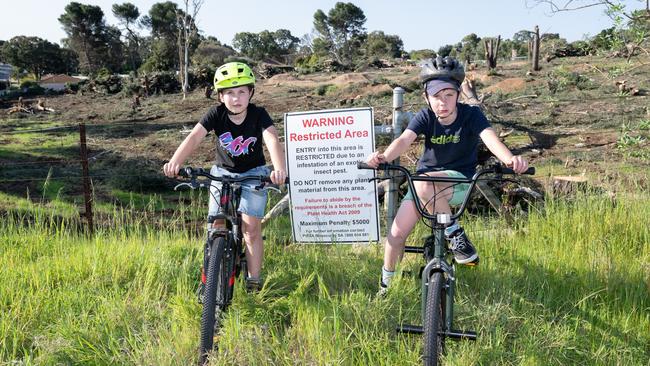
SA News
Don't miss out on the headlines from SA News. Followed categories will be added to My News.
A popular Adelaide reserve is shut and almost 300 trees destroyed amid an urgent biosecurity alert to stop an exotic pest outbreak and protect the state’s multi-billion dollar forestry industry.
Authorities have discovered highly contagious giant pine scale insects in scores of infested trees in three areas at Highbury and Hope Valley, in Adelaide’s northeast.
Primary Industries and Regions experts have been forced to destroy almost 300 trees at the Hope Valley Reservoir and adjacent Elliston Reserve, which also boasts a popular “full-sized” BMX track.
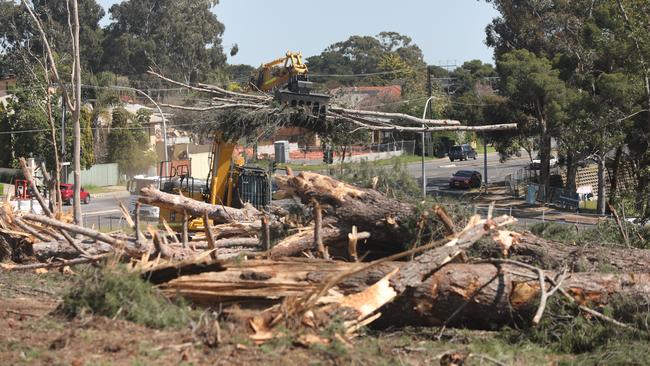
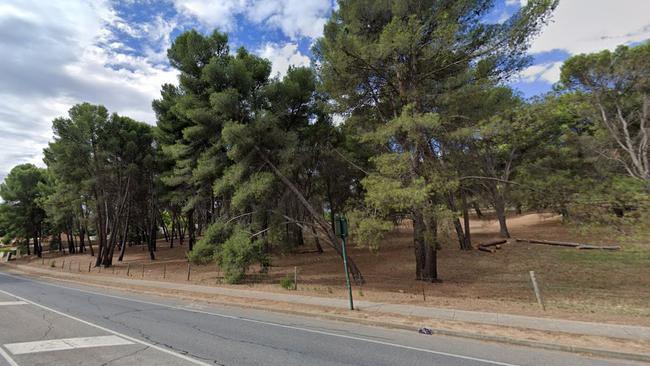
A surveillance operation is determining if the pest has spread further.
Authorities, who were forced to wear special Hazmat-style suits while removing trees in recent days, say it is the first detection in five years.
The pest, which can kill trees, is considered a major threat to the state’s $1.4bn forest industry.
But Tea Tree Gully Council, which manages the state government-owned land, has been subject of a furious community backlash after locals wrongly believed the reserve was sold.
Under state law, PIRSA have fenced off the restricted area and warned residents against removing plantation or risk a maximum $5000 fine under the Plant Health Act.
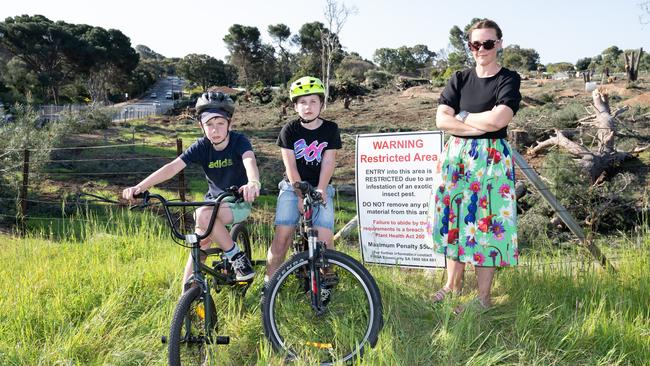
Tea Tree Gully mayor Marijka Ryan said her council had been inundated with “abusive emails by the dozen” and scores of angry inquiries, the volume of which is among its biggest.
“Unfortunately, we’re as devastated as the community but we can’t do anything about it,” she said.
She said the reserve would likely stay closed until early 2024 on biosecurity advice.
“We have to urge people not to use the track,” she said.
The council will rebuild the track and replant trees while the Environment Department will also revegetate the Highbury Aqueduct Reserve.
Hope Valley mother-of-two, Katie Mere, 36, said her sons, Jacob, 10 and eight year-old Josh, were “bummed”.
“It was so beautiful, it was nice and shady, especially in summer,” she said.
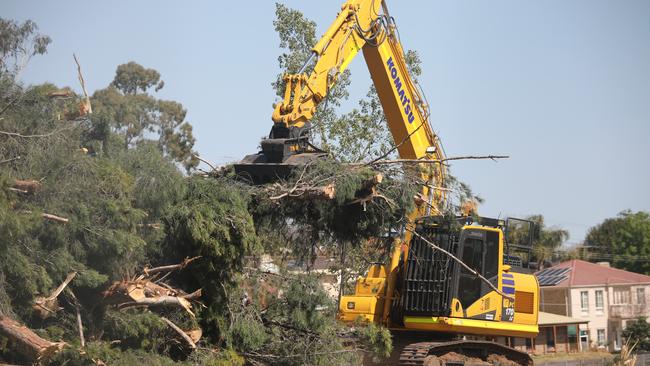
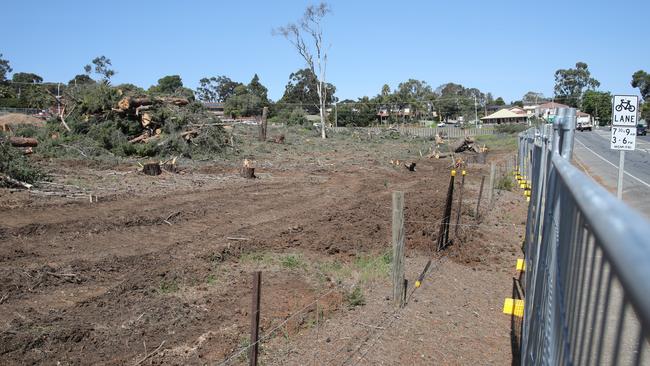
Native to the eastern Mediterranean region, the sucking insect only feeds on the sap of trees from the pine family, such as pines, firs and spruces.
Experts say distinctive white, cotton-like wax secretion can easily spread via shoes or clothing.
An adult scale insect, which can grow up to 12mm long, prefers the lower parts of trees, especially trunks, but it may also be found on upper canopy branches or exposed roots.
Giant pine scale was successfully controlled during previous detections at Dernancourt and North Adelaide in 2014 and Highbury in 2018.
It is, however, regarded as an established pest in Australia, especially around outer Melbourne.
An agency spokeswoman urged local vigilance.
“It’s … essential that these infected trees are removed quickly to prevent further spread and to protect remaining trees in the community,” she said.
Anyone who notices “anything unusual or suspect giant pine scale” should call the Exotic Pest Plant Hotline on 1800 084 881.





